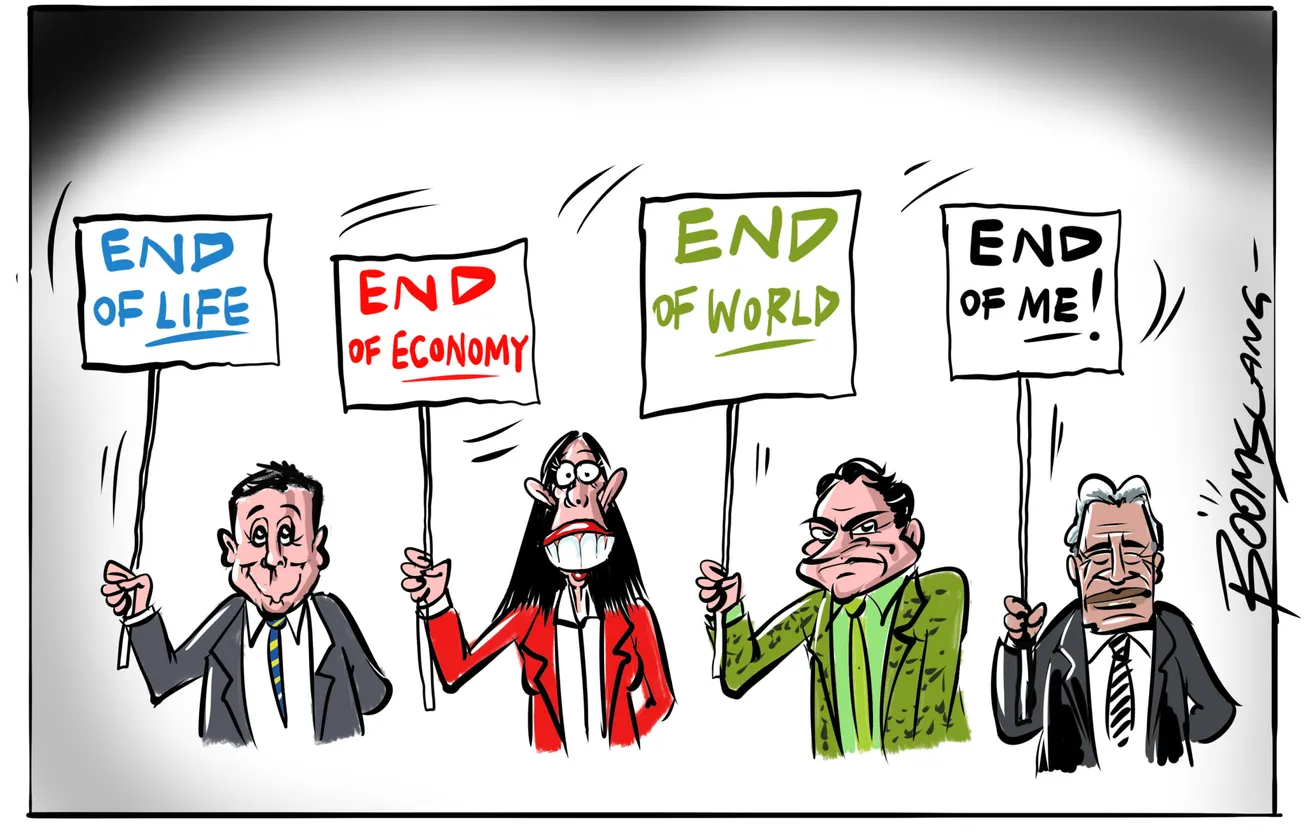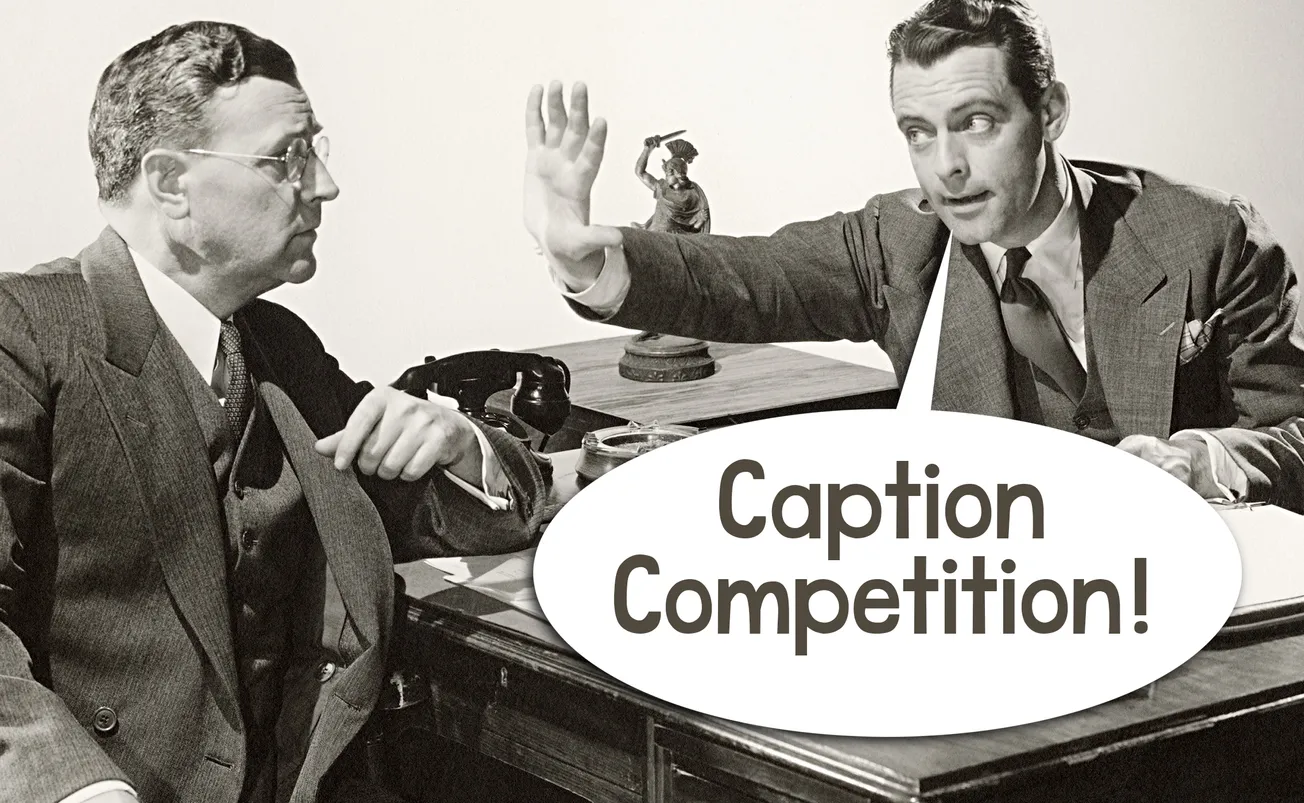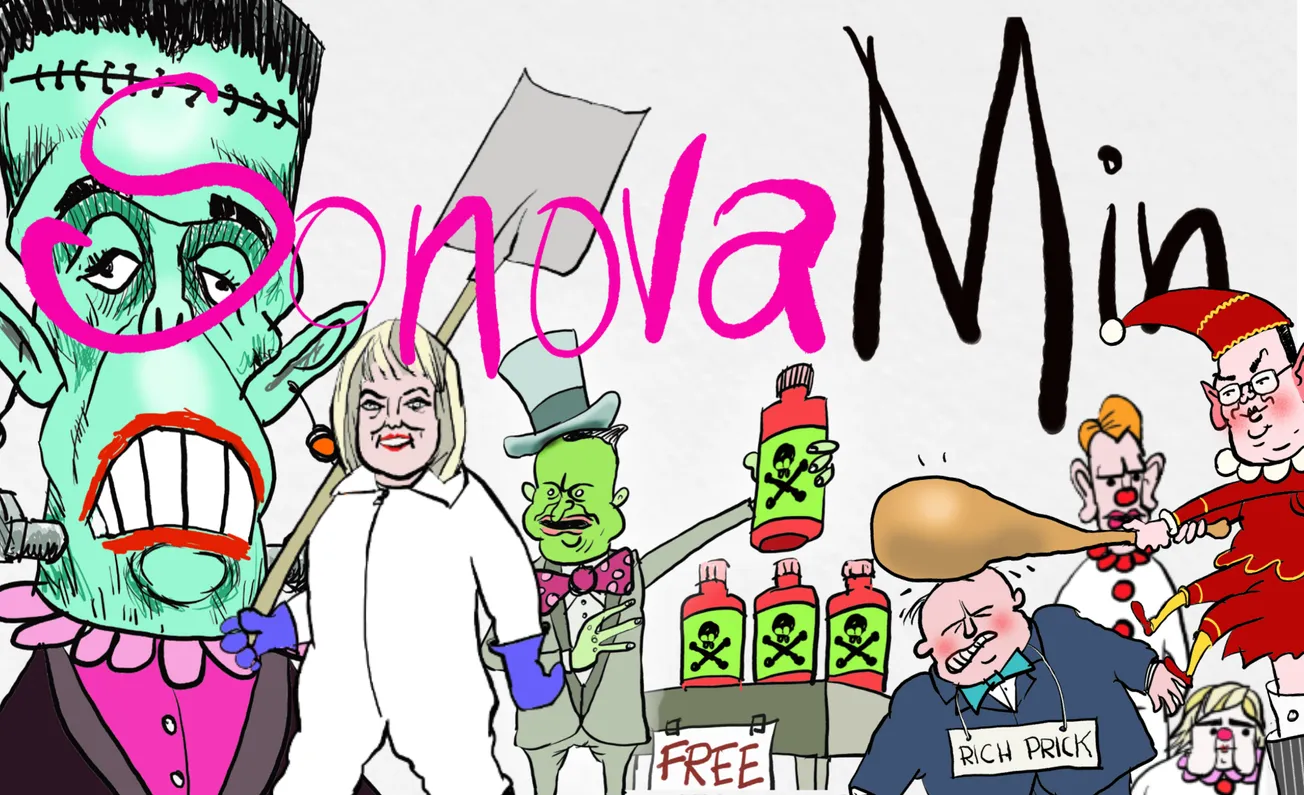Table of Contents
Frank Newman
nzcpr.com
Frank Newman is an investment analyst and accountant, who has lectured in property matters at Massey University. He served two terms as a councillor on the Whangarei District Council and is the author of numerous books on investment matters.
Labour has a problem. It will now have no one to blame for its failures. NZ First has gone. It can’t credibly blame a previous National government. And it can’t blame the Greens even if they bring them into coalition because they didn’t need to give them a position of influence. They alone carry the responsibility for their successes and failures over the next three years. There can be no excuses.
This was a COVID election: extraordinary circumstances and an extraordinary result.
In the minds of voters, Labour handled the pandemic well and the public bought into the notion that Labour’s management of the crisis had saved lives. The financial cost is secondary and has yet to be felt, but most likely public opinion doesn’t care about the long-term financial consequence and has little interest in or comprehension of macro economics. The “Go hard, go early” mantra resonated, as did the catchy slogan that we are a team of five million. It was beautiful PR. And Jacinda Ardern is the perfect front person. She is by all appearances a very nice, lovely person who speaks with sincerity. Andrew Little or any one of their previous short-term leaders could not have done the job anywhere near as well.
Of much less relevance to voters was the government’s litany of failure over the last three years: KiwiBuild, child poverty, housing affordability, education standards, hospital waiting lists. Is there any policy area of success? Labour won’t get away with failure so easily when it is held to account in three years’ time.
This was always going to be a difficult election for National to win. It was even difficult before COVID when it was polling in the mid 40s and it’s only potential partner, ACT, was polling at around two percent. Success was always reliant on a high wasted vote created by NZ First or the Greens or both not reaching the five percent threshold.
On the election night result, National was down 360,000 votes on its 2017 polling to 26.8%. NZ First shed 100,000 votes to 2.7% and was out of Parliament.
Of those 460,000 votes Labour gained 58%. 8% went to the Greens, 26% to ACT, and just under 8% to Advance NZ and the New Conservative Party combined.
National lost votes on all fronts. The leakage to ACT and the New Conservatives is most likely to be due to failings within the party itself. The leadership flip-flops, the poor handling of the “errors” in its economic plan, apparent “leaks”, the lateness in delivering policies of substance, and a lacklustre campaign that seemed to be modelled on their previous campaigns.
The temptation will be for National MPs to yet again change its leader, despite the leadership of Judith Collins not being the issue. In Judith Collins they have someone who can project a more vibrant image for the Party. Unlike many Members of Parliament, she actually has a pulse and is likeable, which for a politician is always useful.
It’s the culture of the Party itself that needs to change. It’s too much like a boarding-school institution that projects an arrogant, born-to-rule culture. They need to wake up to the fact that history counts for nothing. If they want to again be a serious contender for government they need to reinvent their internal organisation.
In my opinion, and without the advantage of any inside knowledge, that change should start with a new Party President and the retirement of some of the long-standing MPs that lost their electorates but have retained a seat in Parliament care of the list. Those MPs should do the right thing and retire now, rather than sit around for three years treating themselves to a comfortable salary and perks with little or no responsibility and adding little or no value. It would be the right thing to give up their place to someone who is prepared to put in three years of hard graft.
National’s immediate challenge though will be to curb the personal ambitions of some within caucus and stop the sensationalist reporting of a rift by the media. To rebuild, the Party needs to show unity around their leader. Those harbouring leadership aspirations – Simon Bridges, Mark Mitchell, and others – should set those aside. They need to recognise that party politics is not about them and declare support for Judith Collins. Not only should they, but the caucus should require it. It seems Mark Mitchell has already ruled out challenging Collins. National also needs to put its best people into key portfolios, like finance. Chris Luxon may be a better proposition than Paul Goldsmith who in all honestly has not been a strong performer in what should be National’s strongest portfolio area.
The positive in the Labour landslide for those who are still clinging onto a candle light of belief in free market principles is that National can no longer hide from the fact that it needs fundamental change. If it doesn’t, it will leave the door wide open for ACT to further erode its voter base and have a legacy that will be a case study of failure for politics students for decades to come.
Unlike National, ACT did offer a consistent policy suite and David Seymour – and by default the Party – has gained credibility it has not had since the days when Richard Prebble was leader. Unlike most ACT policies, the End of Life Choice Bill has general relevancy and was an issue that the public generally could relate to.
ACT’s challenge will be retain its share of the vote, in the face of what’s likely to be a re-emergent National Party (assuming National is able to facilitate fundamental change). It will need to express its policies in a manner that makes them relevant to more than its libertarian groupies.
ACT also has the problem of a caucus with no political experience whose members are likely to be scrutinised and targeted by the media who love nothing more than the challenge of bringing down an MP. They have every sign of having the innocence of freshly born spring lambs. The media will be salivating.
There are two significant electorate results that will have implications for 2023.
The first was the Maori Party winning an electorate seat, but failing to gain sufficient support to gain a second member from the list. The discussions will now be whether it chooses to coalesce with Labour if invited to do so, or whether it takes a role in opposition.
The signs are that it is more likely to use the seat in Parliament as a platform to attack Labour so it can make further inroads in the Maori seats in 2023. While the Party will be relieved to have regained a presence in Parliament, it’s party vote remained at 2017 levels – at just 24,000 votes, or 1%. This hardly gives the Party any credibility to claim it speaks for Maori generally, when Maori are said to be about 15% of the population. In reality it represents the radical elements within the Maori community with an agenda to reclaim sovereignty. Most Maori seem content to live in our democracy as we know it.
It is also sobering to reflect that the Maori Party gained only 3,000 more votes than Advance NZ. That seems to be overlooked by commentators who describe the low-flying Advance NZ party as a lunatic fringe group, typified by the scathing comments of pro-Maori Party commentator Emma Espiner on TV3s election night coverage (who also thought it appropriate to describe Labour a pakeha party).
The second electorate race of interest was the Green Party’s win in Auckland Central.
Chlöe Swarbrick is the new media darling and has been using social online and printed media to cultivate her image – as did Jacinda Ardern when a backbencher. There is every prospect that the Greens can entrench the seat and lock-in their electoral longevity. That may be critical in 2023 should Labour’s vote recede to the low 40s, as is likely. Next time around, the Greens may well be in a Queenmaker position to make policy demands.
There is no doubt the left ran a very good campaign. That is evident in the early voting figures: 70% of the provisional votes were cast in advance of polling day, and disproportionately more from the left than the right.
Labour gained 51% of the advance votes compared to 44.5% of those cast on polling day, and the Greens 8.1% of the advance votes and 6.3% on polling day. National was 25.5% and 29.9%, ACT 7.5% and 9.2%, and NZ First 2.3% and 3.4%. That would suggest the left were much better at mobilising their voter base than the right. That’s another thing that should be on National’s to-do-better list.
2020 has been an unusual year, and the election campaign reflected that abnormality. 2023 will be a completely different story. COVID is likely to be a legacy issue and not be a lifeline for Labour. The focus is more likely to be on the economic recovery and whether Labour has met the high expectations it has created.
Labour will be solely responsible for its achievements over the next three years, and fully accountable for its failures. Not only will Labour be tested, but so too will its brand of socialism, which will not be extreme enough for the Greens, but too extreme for National and ACT.
Those who believe in the merits of a free market economy have a historic opportunity to reaffirm the long proven truth that the socialist ideal of a utopian society is a myth.
If you enjoyed this BFD article please share it.







